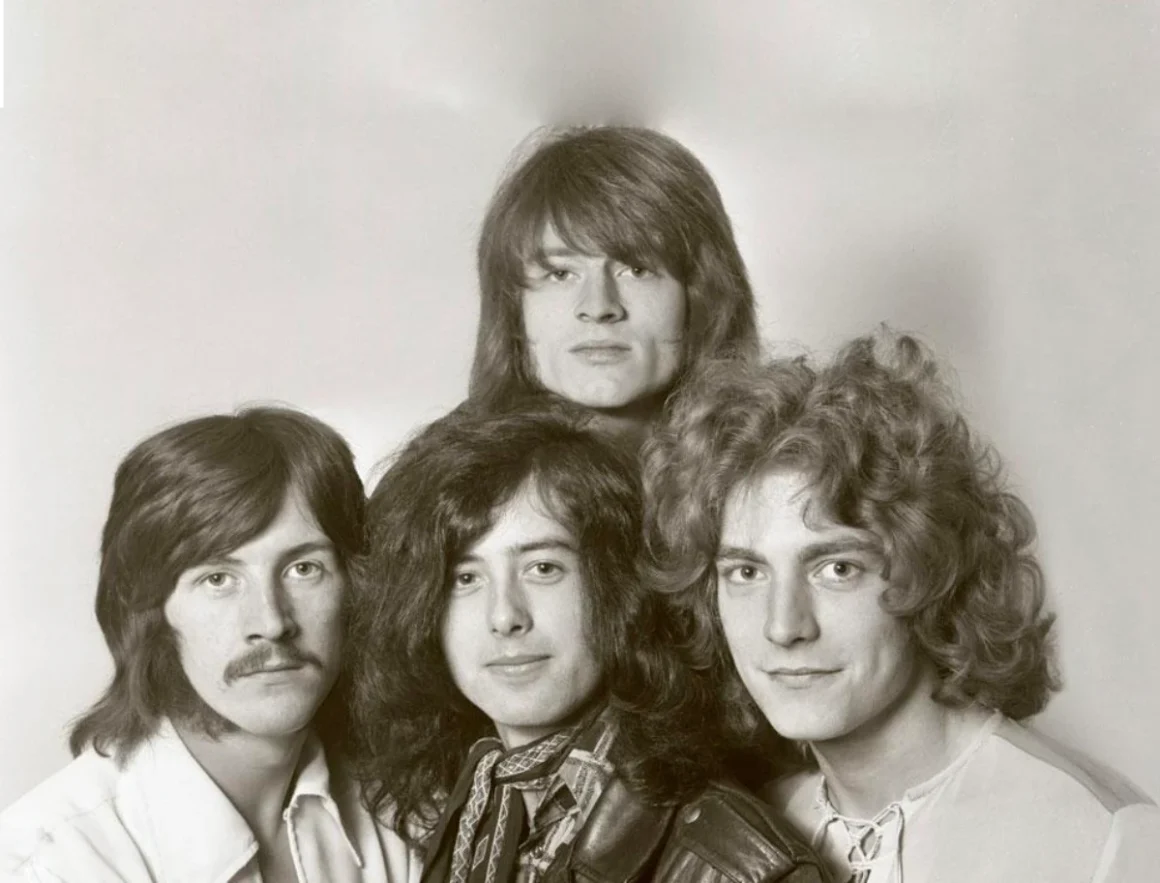Led Zeppelin, like most rock bands, faced its share of disagreements. Rising to the heights of fame left by The Beatles, they had become the world’s biggest band—a title that came with pressures, egos, and inevitable clashes. Their legendary lineup of Robert Plant, John Paul Jones, John Bonham, and Jimmy Page conquered the ‘70s, crafting timeless music while navigating the trials that fame brought. Despite their shared dedication to their craft, there were moments when artistic visions clashed.
Each member was a powerhouse in their own right. Page’s guitar virtuosity paired seamlessly with Jones’ bass grooves, while Plant’s mythical vocals soared over Bonham’s thunderous drums. Together, they were unstoppable both on stage and in the studio, yet creative tensions surfaced in the process.
One song that particularly strained the dynamic was All My Love, a heartfelt ballad written by Plant in memory of his late son, Karac. The track, softer and more introspective than their usual style, quickly split the band in opinion.
While Plant poured his grief into All My Love, Page and Bonham weren’t convinced it represented the true spirit of Zeppelin. They felt the track diverged from the hard-hitting, bold sound that defined their legacy. Page later admitted that he and Bonham felt the song was “too soft” and worried it strayed into territory uncharacteristic of the band.
“I could just imagine people doing the wave and all of that,” Page shared in a 1993 interview, noting that All My Love didn’t quite align with the high-voltage identity he envisioned for Zeppelin.
However, Page respected Plant’s emotional connection to the song, and despite his reservations, he understood why it deserved a place on In Through the Out Door, their final studio album. He reflected, “In its place, it was fine, but I would not have wanted to pursue that direction in the future.”
The album, released in 1979, marked a bittersweet chapter for the band, coming after personal and professional hardships, including the tragic loss of Plant’s son and Bonham’s passing a year later, which ultimately ended their career.
In the end, All My Love became a poignant piece in Zeppelin’s catalog, capturing the depth of their bond. Though Page and Bonham may have felt it diverged from the band’s core identity, they recognized it as an expression of their friendship, a tribute Plant needed to share.
For Zeppelin, the song was more than just an artistic compromise—it was a testament to their journey together as friends and musicians, cementing their legacy with a moment of vulnerability amid a catalog of thunderous rock epics.







